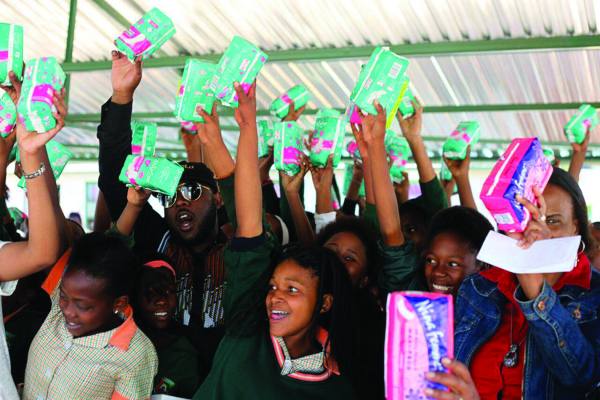
From when she was young, Patricia always wanted to be like her mother. She admired how her mother worked in the house, the way she walked, talked, smiled, and even the way she applied lipstick.
BY TAPIWA ZIVIRA
Growing up in the farming community of Glendale, a peri-urban settlement located some 60 km from the capital Harare, Patricia was just like any other village girl, not exposed to the bright lights of the city, candy shops and ice cream.
The only streets she knew were the long winding paths that she took on the way to school.
Her environment left her with only one role model, her mother, with whom she shared everything.
It is there when she was 15, and had her first drops of menstrual blood, the only person she could confide in was her mother.
Her mother, born in the in 1960s, when the country was still under colonial rule, remembered using cotton wool and newspapers as pads during her monthly menstrual cycles back in the 1970s.
For the mother, who had now reached menopause — the age at which she stopped going on periods — sanitary pads were a completely a new thing.
- Chamisa under fire over US$120K donation
- Mavhunga puts DeMbare into Chibuku quarterfinals
- Pension funds bet on Cabora Bassa oilfields
- Councils defy govt fire tender directive
Keep Reading
“My mother told me that I could use newspapers, or pieces of fabric. She was convinced that would work as it did for her, “Besides, sanitary pads were quite too expensive,”Patricia said
Patricia’s family survives on peasant farming and based on their income, sanitary pads, which cost an average of $1.50 a packet and on average, she would require two packets.
“It is unaffordable for us here because we hardly have regular income, as we are self-sufficient with produce from our garden and maize meal from the granary,” Patricia said.
Patricia is not alone, as recent statistics by SNV Netherlands estimates that in Zimbabwe seven in 10 girls in rural primary schools that menstruate have no access to sanitary pads, a trend attributed primarily to the acute economic challenges the country is facing, which have left many families without sustainable income sources. Various interviews with girls in the farming, peri-urban and rural communities of Mazowe, Concession and Glendale revealed that the cheapestmenstrual health products, sanitary pads, remain beyond the reach of the girls and they resort to, using things like rags, and leaves, which can result in thrush, urinary tract infections, cancer, among other diseases.
Beatrice Savadye, the director of Roots, a non-governmental organisation working, mostly in Mashonaland Central province, to promote the rights of girls and young women, said one of the issues they encounter is that usually girls get to their periods without helpful information on how they are supposed to manage that.
“Usually, we find that when a girl gets her first period, she informs people within her referral network, it could be friends, mother, or an aunty. Oftentimes, these do not have adequate knowledge, and are inclined to recommend the use of items that they used themselves during their time, and because information is passed down in such a way, there is a huge risk of misinformation, as girls are told it is fine to use pieces of cloth or tree leaves,” she said.
Just like Patricia, girls do not get adequate sexual and reproductive health education, and it goes beyond that as older women, men and other members of the community need to get adequate education on menstrual health.
“It is not just a girls’ issue. Everyone in the communities need to be educated on the consequences of using anything other than proper menstrual health items, and this is some of the work that we are doing as Roots, to educate people on the importance of families setting aside a budget for proper sanitary towels. We also believe that community leaders need to break the norm and start to openly speak about menstrual health, which is seen as something not to be talked about in some areas,” she said.
“However, in all this, we are also finding out that sanitary pads are beyond the reach of many families and given that this week, we commemorated menstrual health day, we continue to implore government and duty bearers to put in place measures to make sanitary towels affordable,” Savadye said.











